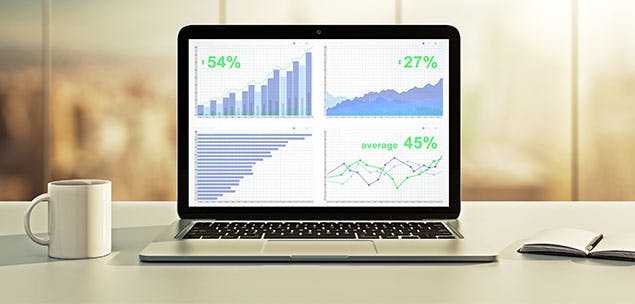All business is a gamble in one form or another. Even though it might not be as much of a crapshoot as a game of roulette, the odds are often against any small business making it beyond its first year. In fact, according to Neil Patel, 90% of start-ups fail. Although his figures are based more on experience and various data points than a concrete number, the main point to understand here is that a lot of businesses fail. When you start to look at things from this perspective, the notion of business being a gamble starts to take on more credence.
So, if that’s the case, what can you do to swing the odds in your favour? The obvious answer would be to think like a gambler. Unfortunately, in this instance, the tactics of a gambler are a little too simplistic to cut it in the business world. If you really want to help improve your chances of success, you need to think like a financial gambler, aka a trader. At the heart of any financial trade is an element of gambling. However, for the informed trader, the possibility of failure has been reduced to such a point that it’s less of a gamble and more of a calculated risk.
Learn to Manage Your Money
Let’s look at this from the perspective of a CFD trader. What is CFD? In simple terms, a contract for difference (CFD) is a trade that basically speculates on the future price of an asset. More specifically, a CFD trader will be investing money on how different the price will be from the time they open a position to the time it closes. In business, you’re also speculating the future of an asset. To put it another way, you’re investing your time and money in an asset (i.e. your product/service) and hoping there will be a positive difference in its value. In reality, the time between Point A and Point B in both mediums will differ. However, the techniques CFD traders use to increase their overall expectation are still useful.
For example, it’s important to manage your money. Starting small and knowing when to enter/exit a trade is important. As a general rule, you shouldn’t risk more than 2% of your funds on a single trade. Moreover, you should cancel a trade when you hit a 10% loss. This concept holds true in business. If you’re a shop owner with a £100,000 starting capital, you wouldn’t spend 75% of it on stock. Similarly, if you ran a promotion and it started to lose money, you’d want to stop at a certain point just like a trader would.
Economic Factors Should Guide Your Business Decisions
Beyond the process of managing your money, traders are acutely aware of economic markers. Whether it’s a political move, an impending corporate takeover or news from the financial world, everything can affect the price of an asset. Again, when you look at business, things are the same. If we take our shop example, you’d want to know the local economy before you made a move. You wouldn’t open on a Sunday if footfall was traditionally low on the day. Similarly, if a new local tax was being discussed, it’s probably going to affect your business rates.
Identifying and then extrapolating pieces of information like this is what a CFD trader will do every day. Studying price indexes, statistical charts and reading news headlines not only gives them an insight into the current dynamics, but also the potential dynamics in the future. From this information, they can decide which moves are the best and then how much they should invest. Whenever a trader invests in something, they’re taking a risk. However, by managing their money and reviewing economic factors, they can reduce this risk. As a business owner, you need to do the same. Although the specifics might be different, the underlying process is the same. Business might be a gamble, but a little thought and planning can make it more like a trade and less like a round of roulette.

